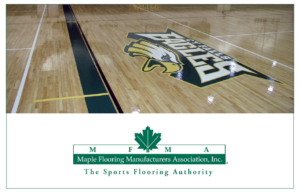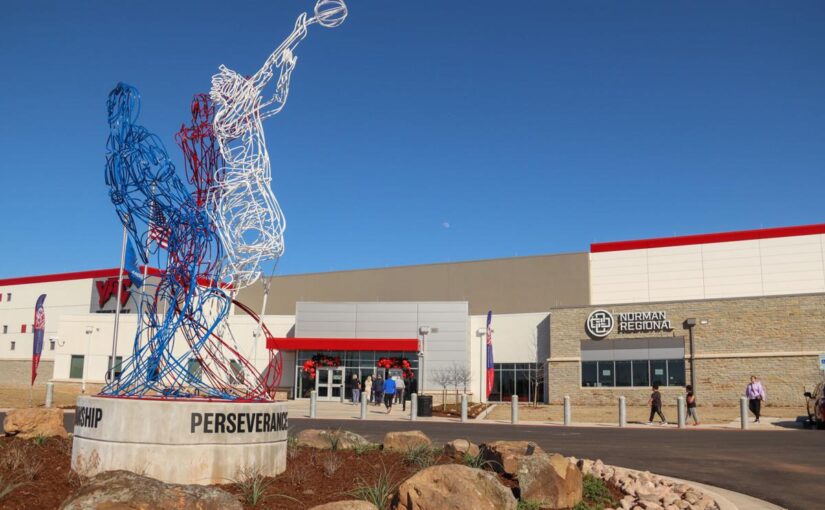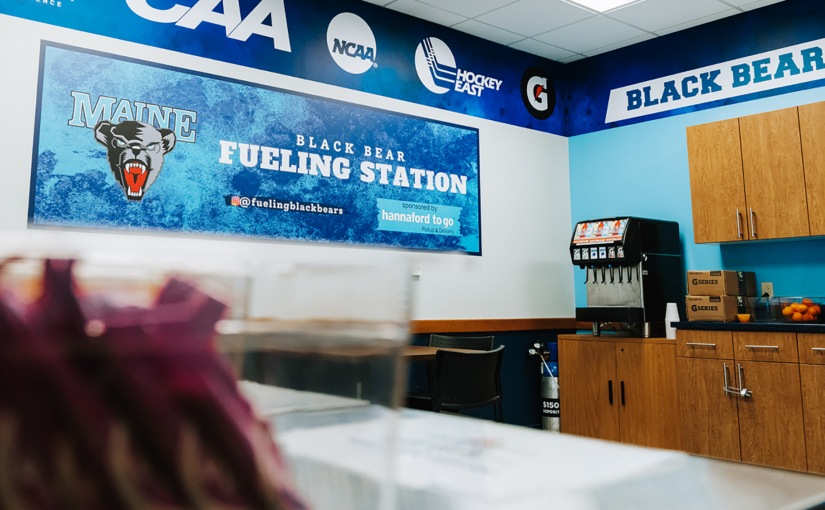Maple Sports Floors — The Smart Choice
{Sponsored} When choosing a new gymnasium floor, several factors will influence the material choice. Will the space be multipurpose? Is it in an elementary school that also uses the gymnasium as a cafeteria? What sports will utilize the space? What type of aesthetic is desired?
Elementary schools with shared spaces will fare well with synthetic floors or vulcanized rubber. These materials are less expensive than the durable hard maple, and they won’t be damaged by cafeteria or science fair set-ups. Recycled rubber is another option that schools consider due to the relatively low cost, but it absolutely kills ball bounce. Vulcanized rubber, a material containing the recycled rubber layer plus a virgin rubber layer atop the recycled rubber layer, will allow for some bounce. But when jumping sports are primarily utilizing the space, rubbers and synthetic flooring quickly become second options.
PROS AND CONS OF VULCANIZED RUBBERVulcanized rubber will provide a decent ball rebound, but the shock absorption won’t be what athletes such as basketball and volleyball players, gymnasts and cheerleaders need to support their joints. Vulcanized rubber is somewhat hard to clean, but it also fares well for weight lifting and is ideal for running. It is inexpensive compared to a traditional hard maple flooring.
THE MAPLE FLOORING OPTION
When basketball, volleyball or other sports that require a ball bounce or create a high level of stress on ankles and knees will primarily use the space, there is no doubt that hard maple flooring will provide the best bang for the buck. Not only will it reduce the shock and stress on joints, preventing some injuries from repeat trauma, but also it will allow the ball to bounce correctly. The up-front cost is significantly higher, but when maintained properly, it is less expensive over time than a synthetic floor.
“Maple will outlive vulcanized rubber. Maple is easier to clean. And overall performance is better than Vulcanized rubber. You’ll experience better ball bounce and better shock absorption,” said Daniel Heney, executive director of the Maple Flooring Manufacturers Association (MFMA), a group that ensures the top quality standards for manufacturing and installing hard maple floors. “For basketball, you typically won’t see a vulcanized rubber floor in high schools, and definitely won’t at the NCAA level. NBA teams also rely upon the ball bounce and shock absorption of a hard maple floor,” Heney continued.
HOW DOES A PROGRAM CHOOSE THE BEST MAPLE FLOOR?
“You’ll want to make sure your project architect specifies MFMA maple flooring to ensure it meets grading standards. Hundreds of subfloor systems are available. The different subfloor systems are designed towards activity or multi-purpose. Typically, the biggest difference is the resilient layer. If you were putting in a dance floor, you may use a different pad durometer to provide more cushion and shock absorption than for basketball,” Heney said. The MFMA PUR standards are an excellent tool for helping you choose the best sports floor for your needs. MFMA’s PUR Standards focus on shock absorption, vertical deflection, area of deflection, ball bounce and surface friction. These standards have been designed, utilizing exacting testing methodologies, to ensure that customers receive a reliable, well performing, competitive sports surface.
Beyond the resilient layer specifications, architects also need to consider if a floating, fixed or anchored resilient floor system will be utilized. Each has different benefits, but your architect or MFMA mill manufacturer member will help navigate the complex floor system specifications to choose the correct one for the space.
WHAT DOES THE MFMA BRING TO THE TABLE?
All MFMA mills are required to meet MFMA grading standards and milling profile. They have to follow specifications for the percentage of imperfections in the wood. Every mill is inspected without notice four times a year in order to ensure compliance. If part of a floor needs to be replaced years down the line, any MFMA-member mill can supply replacement material with an exact match to the original floor, even if a different mill produced the original floor. Every MFMA-accredited sport floor contractor is re-tested to comply with standards every other year as continuing education for those contractors.
To get started on the process of identifying and choosing your next sports floor, finding your sport floor supplier or sport floor or contractor for your new hard maple floor, visit
www.maplefloor.org.
© 2019 MFMA












